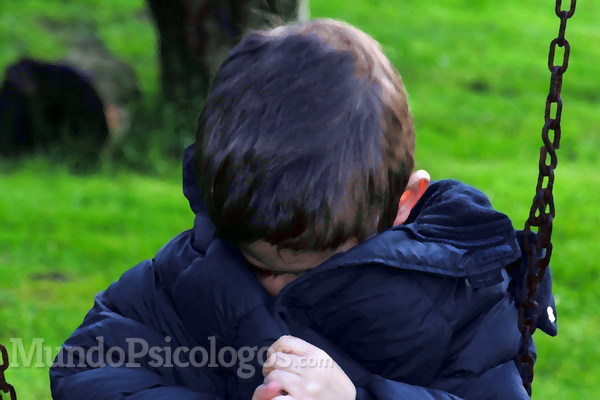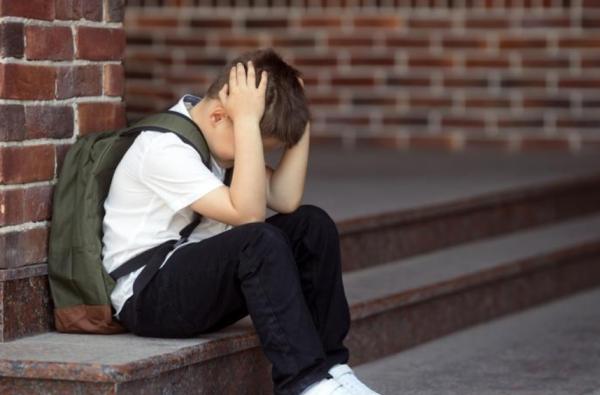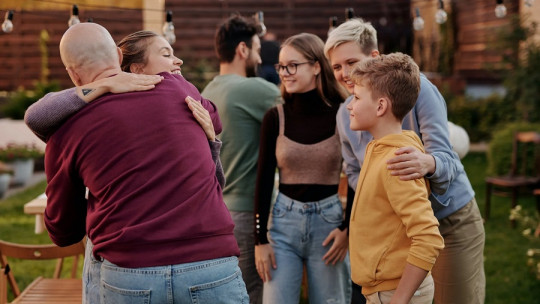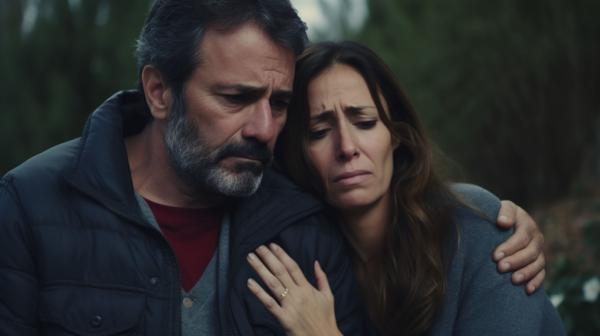
Life after the death of a child is profoundly transformed, as it is a pain that is incomparable and clouds hope when looking to the future, given that a child feels like the continuity of the parents’ life itself. Loss often causes changes in relationships, outlook on life, and personal identity.
In this PsychologyFor article we will explain How life changes after the death of a child, and we will reflect on what can be done to overcome and move forward. This journey toward understanding and healing is unique to each individual, but understanding common experiences can offer comfort and support in times of deep sadness.
How the life of an adult changes after the death of a child
The life of a person changes drastically When you lose a child, well, a child is seen as the continuation of life itself into the future, or as an extension of the parents. In a child, there are many feelings, emotions and hopes placed. Therefore, when you no longer have that child, the pain that comes over you is overwhelming, to the point of interfering with the mental and physical health of the parents.
Ultimately, this type of loss affects multiple dimensions of life. We show them to you below:
Emotional
The brain does not understand the new reality, with this important absence, so parents may look for their children, believing that they are in their rooms, at school or university, and they may even still be waiting for a call. Many experience feelings of guilt, anger, despair and a feeling of emptiness that can last indefinitely.
By not finding their children in the usual places or not receiving that call or visit, parents may feel loneliness, nostalgia, anxiety, flashbacks, and feelings of emptiness.
Relations
Life after the death of a child changes with respect to relationships with family and friends are often affected. Some marriages are strengthened through mutual support, while others can deteriorate due to shared tension and suffering. Many people become isolated, agitated, bitter or stuck. Many come to feel that there is no more future, or that it is gray without the smile of their children.
Mental health
Grief can affect the ability to function in daily life and lead to need for psychological support professional. Some parents may perceive that they hear their loved one, that they have seen them or that they have “touched them”, but these are common symptoms in most bereavements. It does not mean that the sufferer is ill or that there is something supernatural, but rather that over time the intensity of the sensation passes or decreases.
Likewise, there are those who feel that their child “abandoned them” or look for blame. Life will never be the same again. The first few days parents will have difficulty sleeping, they may leave their children’s rooms as they were, not wanting them to touch their things.
Life perspective
When asked how life changes after the death of a child, some parents will react by wanting flee from the placewhile others will want to live in the same house forever and even more so never move, due to the belief that if they leave their son could return and not find them.
Furthermore, instead of going out to the usual places, some of the parents may now visit more frequently the place where their child was buried; they also occur Questions about the role of parents, questioning whether they have been protectors or have fulfilled their role well, especially when they cannot accept the reality of the loss. These feelings may be more intense when dealing with parents who are aging or who are no longer able to conceive.
Only those who have lost a child know that terrible feeling of imagine the future, trying to see what his son could have become, but he didn’t. Maybe, get married, have children. Or if he was younger, seeing him attend college, among other scenarios. All of this is also normal, especially during the first few months.

Why does it hurt so much to lose a child?
When you lose a child not only do you lose a loved person and significant, but also the hopes that were had in the future, in the expectations and commitments that were not fulfilled. This loss is accompanied by pessimism about life, especially when realizing that the son/daughter’s dreams can no longer be fulfilled.
Many times it feels that life has been unfair, and many parents ask themselves “why me?”, as they are never able to understand the event of loss. These Phrases to assimilate the death of a loved one can help you in this painful process.
In addition, they usually have certain routines with their children, such as waiting for them, going out together, taking family walks, serving them their favorite food, among others. traditions that are lostlike not having that special person for whom you chose a gift for Christmas. When significant dates arrivesuch as Mother’s Day, Father’s Day or birthdays, especially that of a child who has passed away, the pain can manifest with greater intensity.
How long does grieving last for the death of a child?
Life after the death of a child changes a lot and there is no set time for grieving. It can take months or years, although many specialists consider that after 1 year it is considered pathological grief. In those cases, we recommend reading this article on How to overcome pathological grief. However, many thanatologists are against this position, since each grieving process is individual and can last as long, or be as intense, as the relationship was significant.
It should be noted that the loss of a child is never forgotten and that many thanatologists today have decided not to use the term “overcoming” or “getting over” the loss, considering that This is never overcome, but rather “integrated.” to the life. The truth is the time depends on each person and the process is painful and complex, and can go from one stage to another, since these are not linear, namely: denial, anger, depression, negotiation and acceptance.
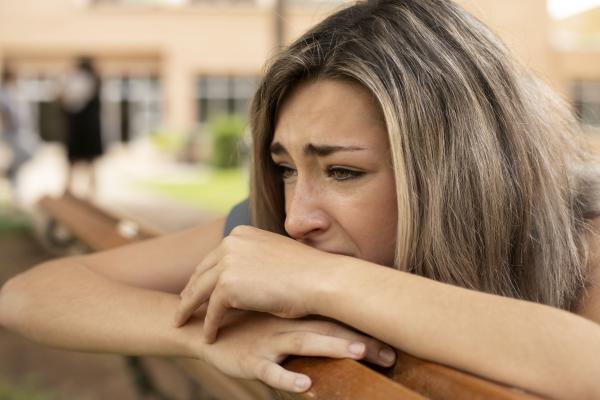
How to live after the death of a child
Living after the death of a child is not easy. All losses are significant, but the death of a child is considered one of the most difficult and painful. This leads many parents to question whether it is even worth continuing to live, or to feel the wish that they had died and not their children, since it is considered an event that goes against natural laws. Some guidelines that can help In this situation they are the following:
- Let your feelings emerge: It is common to hear phrases like: “stop crying”, “if you cry, he or she will not rest”, “if you do not stop crying, he or she will not be able to go to the other plane”, “if you cry, your child or daughter will be suffering”, among others. These are nothing more than beliefs that have no foundations. You can and should cry if you feel like it, since these are feelings that are not advisable to repress.
- Take care of your health: If you want to get back to your life, but you can’t or if you feel that the pain is overwhelming you, you can ask for professional help from a psychologist or thanatologist to accompany you during the process. Discover in this article How to know if I need to go to a psychologist or psychiatrist.
- follow a routine: The first few days will be difficult, but then you will be able to establish a small care routine that includes personal hygiene, eating a healthy diet, and taking care of yourself. Don’t put pressure on yourself if you can’t always meet them.
- Give yourself permission to live: It is normal to feel guilt when you perceive that your life continues to flow and you try to return to the center of pain. You may also fear that other people will judge you. In no case is pain justified, because the loss will always be there, it’s just that life goes on and there are moments when it is normal to laugh. This does not mean that you are betraying your child by forgetting him/her.
- Lean on your loved ones: The company of family and friends will be good for you. You can also seek spiritual help. Family support is very important. If not, then that of friends, especially to try to experience pleasant sensations.
- Try new activities: Going to churches or signing up for new courses and learning new skills can be good if you feel good about it. All this will help you avoid isolation. If you wish, you can honor your child’s memory by engaging in altruistic activities or providing support to other parents who have also suffered loss and do not understand the feelings they are experiencing.
This article is merely informative, at PsychologyFor we do not have the power to make a diagnosis or recommend a treatment. We invite you to go to a psychologist to treat your particular case.
If you want to read more articles similar to How life changes after the death of a child we recommend that you enter our Social Psychology category.
Bibliography
- Hernandez, AMG (2010). The meaning of losing a child: the discursive construction of fathers’ and mothers’ grief. University of La Laguna (Canary Islands, Spain).
- Ortiz, AIV, & Vázquez, YD (2010). Cognitive-behavioral intervention for the processing of grief in the mother-child dyad. Uaricha, Psychology Magazine, 7(14), 1-11.
- Roitman, A., Armus, M., & Swarc, N. (2002). Mourning the death of a child. Psychoanalytic openings: international journal of psychoanalysis, 12.
- Rosas, AMA, & Ayala, MDLC (2020). Evaluation of a psychotherapeutic intervention with parents grieving the death of a child. Health and Social Welfare Magazine (ISSN: 2448-7767), 4(2), 33-50.

